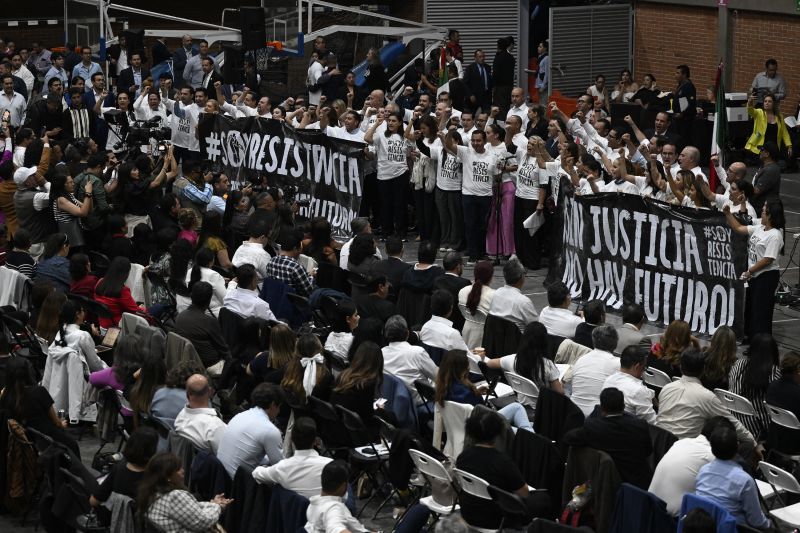
Critics Fear Democracy at Risk as Judges Face Election in Mexico
In examining the issue of judges having to run for election in Mexico, it is essential to consider the arguments put forth by both proponents and critics of this potential change and its implications for the country’s democracy.
Proponents of the proposal argue that making judges run for election will increase accountability and transparency in the judiciary. Supporters believe that having judges elected by the people will make them more responsive to the needs and values of the society they serve. By making judges directly accountable to voters, it is argued that they will be more inclined to act in the public interest and uphold the rule of law.
However, critics of the idea raise serious concerns about the potential adverse effects on judicial independence and the impartiality of the judiciary. They argue that subjecting judges to electoral competition can make them susceptible to political pressures and influence, as they may feel compelled to make decisions to secure their re-election rather than uphold the law impartially. This, in turn, could undermine the separation of powers and the checks and balances essential for a functioning democracy.
Furthermore, critics also point out that electoral campaigns for judicial positions can be tainted by political interests, campaign financing, and external influences, which may lead to a politicization of the judiciary. This could erode the public’s trust in the judiciary and undermine its legitimacy as an impartial arbiter of justice.
In light of these arguments, the issue of judges running for election in Mexico is a complex and contentious one. While the concept of judicial accountability and responsiveness to the public is appealing, the potential risks to judicial independence and impartiality must also be carefully weighed. Striking a balance between these competing interests is crucial to safeguarding the integrity of the judiciary and preserving the democratic principles on which Mexico’s legal system is built.
As Mexico continues to deliberate on this proposed change, it is essential for policymakers, legal experts, and civil society stakeholders to engage in an informed and inclusive dialogue to ensure that any reforms to the judiciary uphold the rule of law, protect judicial independence, and strengthen democracy in the country.
